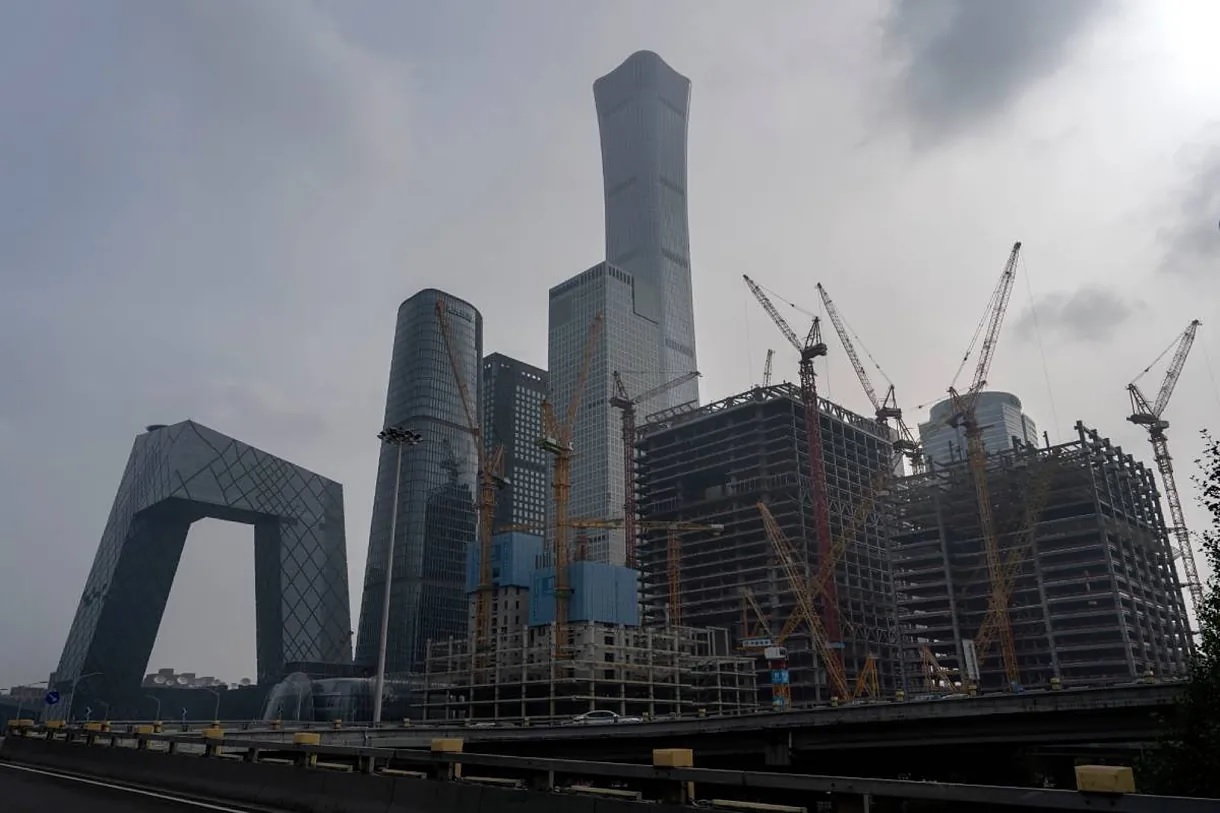The ruling elite of China has kicked off a significant four-day closed-door meeting on Monday to set the course for the world's second-largest economy in the coming years. Amid all the international storms and economic and demographic challenges facing the Asian giant, Chinese analysts have been emphasizing for weeks that this gathering of top leaders in Beijing is likely the most important since Xi Jinping presented his vision for China's future during his first such event as president in 2013.
Formally known as the Third Plenary Session of the XX Central Committee, the governing body of the Communist Party of China (CPC), more than 350 Chinese politicians will discuss the economic, technological, social, and environmental roadmap that the country must follow to achieve "socialist modernization," a term often used by Chinese politicians to refer to the goals set for 2035, such as the expansion of the middle class, per capita GDP growth, or the reduction of social disparities.
For now, clues about the most significant topics to be discussed at this third plenary session can be found in the hints dropped in recent days by the state-run Xinhua news agency, which uses the sometimes indecipherable neolanguage that Beijing is accustomed to.
"The plenary session will mainly examine issues related to the comprehensive deepening of reform and the advancement of Chinese modernization," Xinhua said, indicating that some of the objectives for the next decade will be established. "By 2035, a high-level socialist market economy system will have been fully established, the socialist system with Chinese characteristics will have been further improved, and significant progress will have been made in modernizing the national governance system."
The third plenary, held every five years, is considered the most important of the seven key meetings that the Central Committee, composed of 205 full members and 171 alternates, holds in its five-year cycles. Here, the priorities of the omnipresent ruling party are laid out, so many observers, both inside and outside of China, are attentive to the political and economic signals emanating from this meeting.
For example, in 1978, then-leader Deng Xiaoping introduced the effective "reform and opening-up" campaign at a third plenary that would lead to the incredible transformation of the country. At another meeting in 1993, with President Jiang Zemin at the helm, the CPC solidified its goal of turning China into a market economy, a crucial step for Beijing's accession to the World Trade Organization (WTO) in 2001, paving the way for subsequent years of rapid economic growth.
"Xi's third plenum in 2013 seemed unusually ambitious, raising hopes for economic and political liberalization, but its true significance was allowing power to be centralized around the president," analyzes Jing Qian of the Asia Society, a think tank supported by the Australian government.
"The political signals for this July plenum suggest a strong emphasis on Xi's goals of achieving technological self-sufficiency, addressing financial risks, streamlining the relationship between the central government and local governments, and improving social welfare. There are also indications that Beijing may seek to ease conditions for private enterprises and foreign investors in high-tech sectors," the expert continues.
With political stability seemingly secured under the third term of a strengthened Xi Jinping, Chinese leaders are primarily focused on the economic front. The Asian superpower is struggling to rev up its engine after reopening last year following the long pandemic closures. Market turbulence, weak consumer demand, and local government debt are weighing down growth. This is compounded by the current demographic disaster, with birth rates at historic lows.
On this Monday, the second-quarter GDP growth data was released, showing a 4.7% increase. This represents a slowdown from the 5.3% in the first three months of the year. Xi's government aims for an economic growth of around 5.0% by 2024.
"Since the beginning of this year, global economic growth momentum has been weak, inflation is rigid, domestic demand is insufficient, and international geopolitical conflicts and trade frictions occur frequently," said the statement released by the National Bureau of Statistics.
On Thursday, the CPC leadership will issue a statement with the conclusions of the third plenum. The document is expected to emphasize the concept of "new productive forces," frequently used this year by China's official narrative to highlight that the core of all policies must be the plan for technological innovation.
In addition to internal issues, another, more political front opening at the Beijing meeting is the increasing pressure coming from the West following a NATO summit that pointed to China as the "decisive enabler" of Russia's war in Ukraine, suggesting that Xi's government is fueling Moscow's defense machinery by selling key technology to boost arms production.
